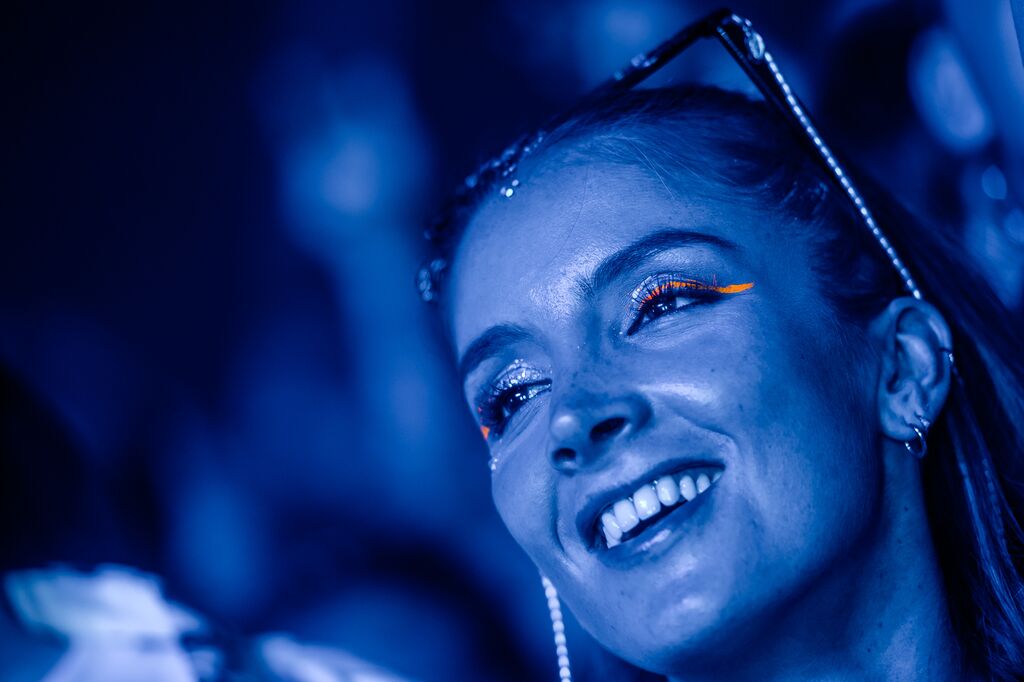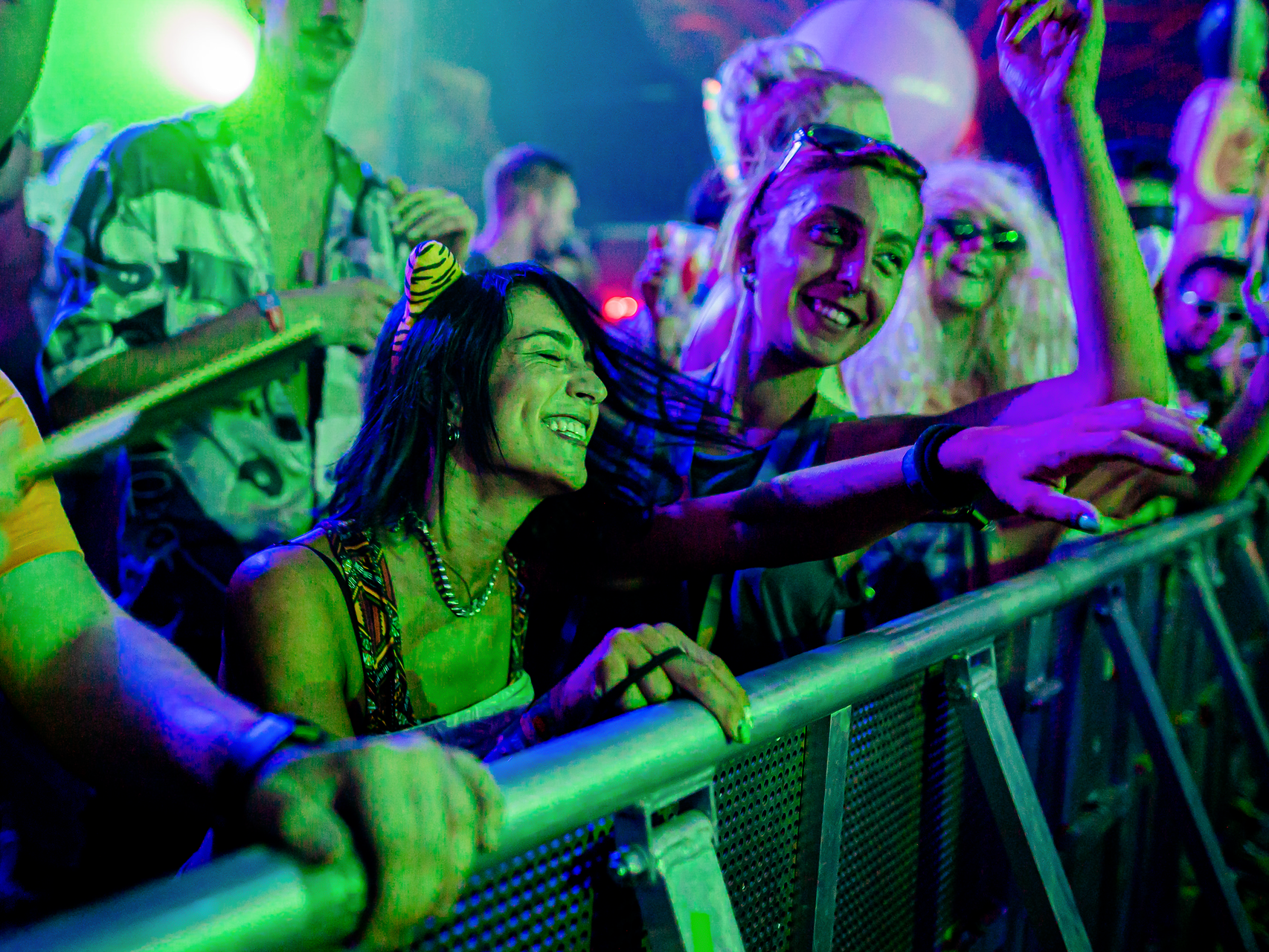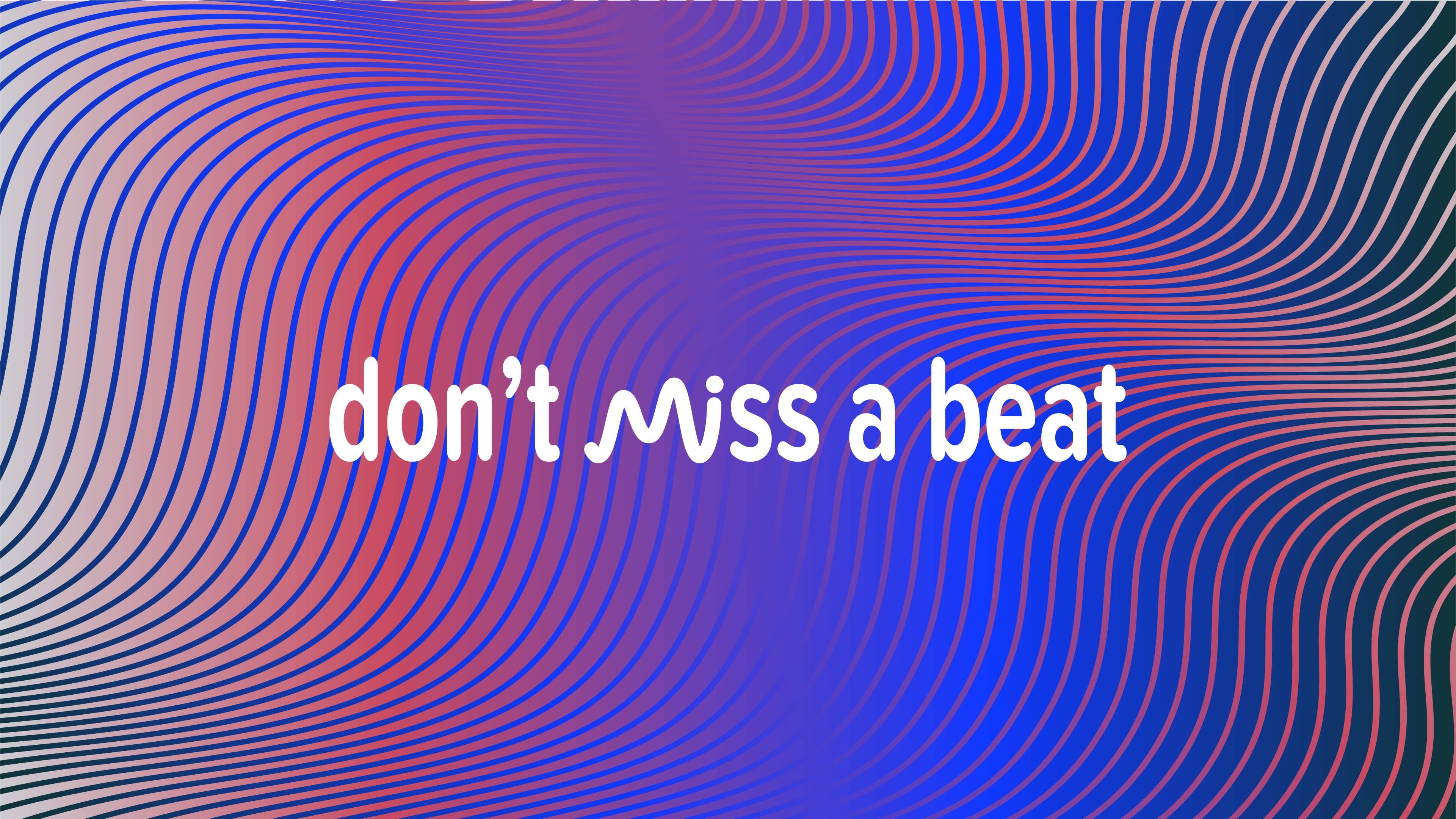How many times have you forgotten your earplugs and prayed to the gods of tinnitus that tonight might be an exception? Or rolled your eyes at the volume warnings on your phone (and googled how to remove them)? Or laughed over the ringing in your ears?
I’ll go first: too many to count.
And I’m not alone. In a recent TicketSwap survey, we found that in the UK only one in 10 wear earplugs to protect their hearing, even though almost half reported hearing ringing in their ears after being at a music event.
What’s more, 44% of people reported not taking their hearing seriously, or feeling neutral to the topic.
Even anecdotally, when TicketSwap’s editorial team reached out to friends and former colleagues in the music industry, we were met with a resounding sigh of resignation, and the popular response “I know I should wear earplugs… but I just… don’t.”

Risk of hearing loss in the music community
Nearly 50% of people aged 12-35 are at risk of hearing loss because of their exposure to loud sounds, according to the World Health Organisation.
And dedicated music fans – not to mention the artists, bands and DJs who play to them round the clock – risk worsening their hearing at an even more rapid rate, because of the amount of time spent exposed to noise in clubs and other music venues.
Tinnitus, for example, is twice as common in the music industry than other, quieter industries such as finance, according to a study by Manchester Centre for Audiology and Deafness.
Only 1 in 5 know what a safe decibel rate is
“As sound levels at gigs and festivals can reach over 100dB, even short gigs have the potential to cause irreversible harm such as deafness, tinnitus, oversensitivity to noise added to increased risks for early onset dementia and cognitive impairment,” says Clare Forshaw, Founder and Director at the UK Hearing Convention Association.
“Your ears are actually amazing, and their function is important to everyday life. It's never too late to start looking after your hearing,”adds Dr James Schuster-Bruce, Ear Nose and Throat specialist registrar, who we’ve teamed up with to bring you Sonic Safety insights throughout the #dontmissabeat campaign.
“Whatever point that you start looking after it is a good point to start – preferably as early as possible.”
Long story short: our love of music needs to come with a commitment to protecting our ears – and that doesn’t necessarily mean putting a damper on your night out.

Why safe listening matters
“We believe everyone should be enjoying sound in a safe way so it can last a lifetime,” says Forshaw. “That doesn’t mean you have to stop going to gigs or turn it down so much you lose out on the experience." “You can enjoy live music in a safe way by using the right ear plugs; so you still get the full experience but without the harmful levels, avoiding being right in front of the speakers and giving your ears a rest are all simple ways you can enjoy sound in a sustainable and healthy way.”

Party smarter with #dontmissabeat
This World Hearing Day 2023, TicketSwap launches our Sonic Safety campaign. Throughout March and into 2023 we’ll bring you everything you need to keep your hearing safe; expert advice, interviews with your favorite artists about hearing their health, chances to win sonic safety prizes and more. There’ll also be educational materials, community resources, investigations into the taboos that prevent the music community from safe listening, deep-dives into the science behind hearing health at gigs and clubs, and more safe listening strategies to help you prevent hearing loss (without ruining your night out) from Sonic Safety expert Dr James Schuster-Bruce.
We’ll also see you out on the festival circuit in 2023, linking you up with even more resources, advice and spaces to protect your hearing, share your stories and continue your Sonic Safety journey – wherever we’re meeting you on it. Find us, follow us, and join TicketSwap’s Sonic Safety movement.
#dontmissabeat
Find us on Instagram, TikTok and YouTube at @ticketswap.




